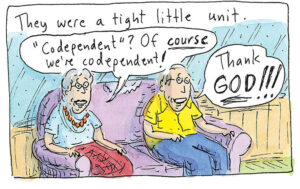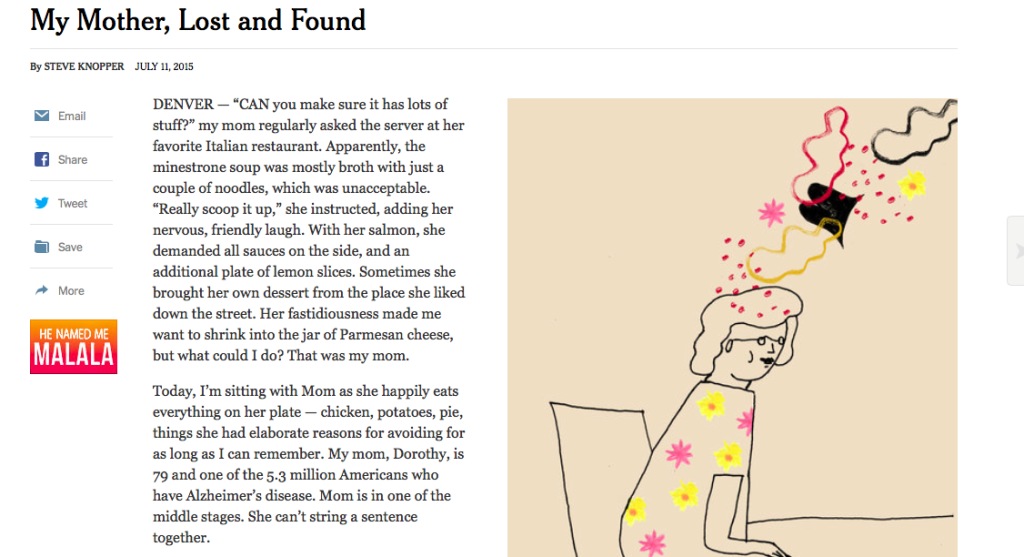Many boomer age people (people born between the years 1946 – 1964) were part of the counter culture of the 1960’s. Beginning in the 1960’s one of the most popular and sustaining explorations was meditation. People traveled to Asia to learn traditional forms of mindfulness practices..and then some of the Asian teachers began to travel to the west as more and more people found meditation practice to be extremely helpful in many ways. [Read more…] about The Growth of Mindfulness Practices
ELLEN’S BLOG
Why Do People Work After They Reach “Retirement Age”?
There are a variety of reasons that people continue to work past what has been considered “retirement age”. Some people find that they are at the height of their skills, accumulated over a lifetime and are now ready to open the business of their dreams at age 70. While there is rampant ageism which excludes some very competent older people from the job market, lots of people over 65 are very innovative and undeterred, thereby bringing about the beginnings of a revolution in the work place..we’ll be seeing more and more 65-75 year olds going strong as experts in their fields. [Read more…] about Why Do People Work After They Reach “Retirement Age”?
Finding Relief and Saving Money with a Geriatric Care Manager
This article was originally published in the August 2017 issue of the 50+ Marketplace News (Boulder Edition).
While the term “geriatric” may no longer be as popular as “elder” or “senior,” Geriatric Care Managers belong to a very established, nationally certified profession. So, what is a Geriatric Care Manager? Here are some of the skills a GCM will bring into their work with you:
- Develops kind, trustworthy relationship with client.
- Matches client with local services such as in-home care, skilled companionship, financial and legal experts and hospice.
- Meets client where they are rather than having client travel to GCM’s office.
- Saves families money by avoiding having to leave work and income to help parents, while GCM tackles the tasks at hand. The GCM becomes a sounding board for decision making, and provides stress relief.
- Develops a friendly working relationship with client’s doctors, and maintains detailed reports, thorough organization, and support that extends to both the client and the family.
- Accompanies client throughout medical processes, makes regular home visits, plans enjoyable outings, coordinates client’s schedule and personal network, and more.
Why it’s important to find a certified GCM: [Read more…] about Finding Relief and Saving Money with a Geriatric Care Manager
Reversing cognitive decline
This new research is quickly popping up in many places. I find it interesting that the therapy suggested involves simply taking really good care of oneself! Interesting that the implication could be that not doing so causes enough stress that we compromise our nervous systems to the extent that dementia could occur!! Click here to read the article.
What is a Geriatric Care Manager?
As a Geriatric Care Manager, I wanted to discuss a bit about what we do, and what this ”Geriatric Care Manager” handle means.
I love my work as a GCM. I find that the title however, while at times familiar to some people can be a strange mouthful for others. In answer to the question about what it means, there is quite a lot to say.
First of all, let’s break apart the 3 words..I am not a fan of the term “geriatric”, since it can sound strictly medical and I don’t know anyone who would want to identify as being geriatric. Essentially, the word has earned mostly a negative image. I prefer using the term “elder care manager”, but that is not name that was chosen for the certification for this field. The national organization I am certified through, formerly called the National Association of Professional Geriatric Care Managers, is now called Aging Life Care Association, https://www.aginglifecare.org/ And the term “geriatric” does differentiate the population we work from people of other ages who may need care managing. [Read more…] about What is a Geriatric Care Manager?
Interviewed and Featured in New York Times
I was recently interviewed for an article by Steve Knopper for the New York Times called “Mother, Lost and Found”.
This is a wonderful and heartfelt short story about Steve Knopper’s mother’s experience with Alzheimer’s Disease. Steve referred to my work with his mother and in particular the technique often used with people with dementia, known as validation. (I will be writing a blog post about this concept).
I was very honored to be mentioned and included in Steve’s article. You can read the whole article here.
Project Visibility
 I am really looking forward to a training happening this September 18th in Boulder. The subtitle is: “Become Culturally Competent to better serve Lesbian/Gay/Bisexual/Transgender Elders” with Project Visibility.
I am really looking forward to a training happening this September 18th in Boulder. The subtitle is: “Become Culturally Competent to better serve Lesbian/Gay/Bisexual/Transgender Elders” with Project Visibility.
So many of these people are underserved and as the title tells us, invisible. I hope we can all increase and improve our tools for helping more people through trainings like this. [Read more…] about Project Visibility
Another thing caregivers should know/a recent change in auto insurance
Recently a friend who works professionally with older people, and I were discussing an arrangement for driving a client to his doctor’s appointment. She told me that she’d discovered that her insurance company had changed its policy about driving clients in her car, without alerting her. She had always figured that she had proper coverage for driving her clients anywhere..to do errands, to the doctor, and so forth.
So I called my insurance company (a very well known company) and sure enough, as I dug deeper with my questions, I too found out that I did not have coverage in the case of an accident, for my passenger, if they were paying me.
The insurance company was not talking about clients who pay for the ride, in particular. But clients who were paying me for any kind of assistance. Even just companionship or just because their family lives out of town and they needed a lift somewhere or to the doctor or they are a therapy client…If they were to wind up in the hospital, I would be liable. And I had thought it was OK with this company to drive clients around. Lucky I had that little chat with that particular friend!
[Read more…] about Another thing caregivers should know/a recent change in auto insurance
A little humor about something important!
 If you have not heard of or seen Roz Chast’s wonderful cartoons, here’s a great place to start . . . talking about “the Conversation” with her aging parents. Ridiculously accurate! Roz Chast: “Can’t We Talk About Something More Pleasant?” | The New Yorker
If you have not heard of or seen Roz Chast’s wonderful cartoons, here’s a great place to start . . . talking about “the Conversation” with her aging parents. Ridiculously accurate! Roz Chast: “Can’t We Talk About Something More Pleasant?” | The New Yorker
What’s the difference between Alzheimer’s and Dementia?
What is the difference between Dementia and Alzheimer’s?
So often I hear people say things like “my father doesn’t have dementia, he has Alzheimer’s”. I know exactly what they mean. And, it shows a need to learn more about what those words refer to. Actually Alzheimers IS a form of dementia!
Think of it this way: Dementia is the umbrella term for many different brain diseases. Alzheimer’s is only one of them.
The word dementia could be taken apart as: de (“down from” or “concerning”) + mens (“mind”). Maybe we could safely say “apart from”..rather than “out of one’s mind”. Just not having the same access in the same ways to our normal brain activity. [Read more…] about What’s the difference between Alzheimer’s and Dementia?
Here’s an Interesting Article
This article, published in the NY Times magazine June 20, 2010, entitled What Broke My Father’s Heart.
Support for the caregiver
Modern medicine and surgeries have transformed our lives. It’s miraculous to be able to overcome illness and injury. Who doesn’t hope for a cure, a way of “defeating” threats to our lives? But for some of us, we might be impacted by the medical process in ways we are not prepared for. Perhaps the person with the medical condition does not completely return to full independence. Or in the case of aging, our frail elders just need increasing assistance as year after amazing year goes by. Or it could be a combination of both of the above.
With regards to aging, in 1996 when I first began working professionally with older people, it was unusual that we’d see someone over the age of 100. It was a marvel and cause for celebration and for taking endless photographs of the elder. Now, we can see in the paper that people making it over the age of 100 is no longer big news. And it’s almost commonplace to meet nonagenarians – many of whom are still active in community life and can manage very well independently. [Read more…] about Support for the caregiver
Frailty and Dementia
Frail older people:
The frail state is one where vitality is low or lacking altogether, and a person has less strength and resilience to withstand physical and emotional stress. Frailty renders a person vulnerable to illness and injury.
Older people with memory loss and confusion:
Working with elders who are living with various degrees of dementia (including Alzheimer’s) is an area of my work that I especially appreciate. I find I have a temperament and the skills most needed for working with memory loss and confusion. Dementia is a condition that is often misunderstood. Dementia: irreversible memory loss and confusion, caused by strokes, Alzheimer’s type plaques and tangles in the brain, Parkinson’s disease and other degenerative conditions of the brain and nervous system. [Read more…] about Frailty and Dementia
